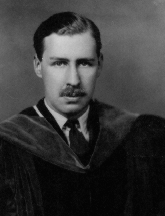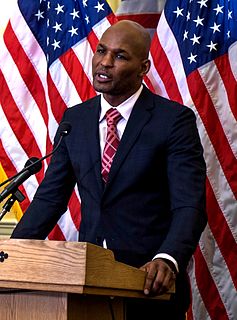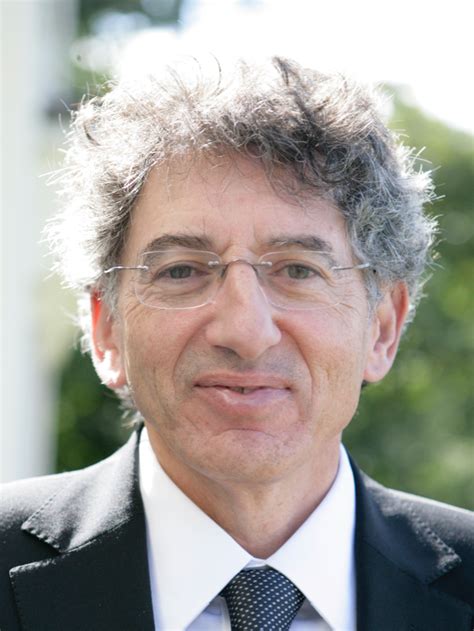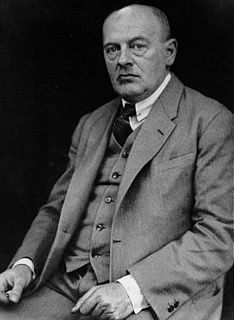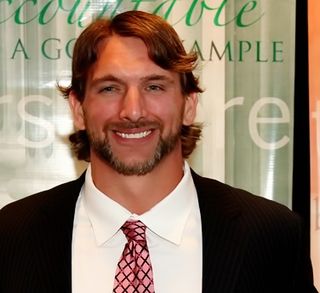Top 632 Convictions Quotes & Sayings - Page 10
Explore popular Convictions quotes.
Last updated on November 25, 2024.
No one can flatter himself that he is immune to the spirit of his own epoch, or even that he possesses a full understanding of it. Irrespective of our conscious convictions, each one of us, without exception, being a particle of the general mass, is somewhere attached to, colored by, or even undermined by the spirit which goes through the mass. Freedom stretches only as far as the limits of our consciousness.
If you expect the worst from a person, you can't ever be disappointed... The pessimist takes a sort of gloomy pleasure in observing the depths to which human behaviour can sink. The more sin he sees, the more his belief in Original Sin is confirmed. Everyone likes to have his deepest convictions confirmed; that is one of the most abiding of human satisfaction.
Remember to build each other up, to strengthen and sustain, to keep companionship lovely and alive. Remember dignity and respect; understanding; not expecting perfection; a sense of humor and a sense of what is sacred and serious; common purposes, common convictions, and the character to stay with a bargain, to keep a covenant - in these are the making of a good and solid marriage.
IF WE AND OUR POSTERITY SHALL BE TRUE TO THE CHRISTIAN RELIGION, IF WE AND THEY SHALL LIVE ALWAYS IN THE FEAR OF GOD AND SHALL RESPECT HIS COMMANDMENTS, IF WE AND THEY SHALL MAINTAIN JUST MORAL SENTIMENTS AND SUCH CONSCIENTIOUS CONVICTIONS OF DUTY AS SHALL CONTROL THE HEART AND LIFE, WE MAY HAVE THE HIGHEST HOPES OF THE FUTURE FORTUNES OF OUR COUNTRY. OUR COUNTRY WILL GO ON PROSPERING.
Tolerance can be exercised only by those who have well-grounded convictions (although it will not always be exercised even by them). For such people tolerance is an act of self-abnegation; although they are convinced that those who differ from them must be wrong, they nevertheless will protect their rights.
Beware of being obsessed with consistency to your own convictions instead of being devoted to God. The important consistency in a saint is not to a principle but to the divine life. It is easier to be an excessive fanatic than it is to be consistently faithful, because God causes an amazing humbling of our religious conceit when we are faithful to Him.
Let people say whatever they like, stick to your own convictions, and rest assured, the world will be at your feet. They say, "Have faith in this fellow or that fellow", but I say, "Have faith in yourself first", that's the way. Have faith in yourself-all power is in you-be conscious and bring it out. Say, "I can do everything."
You think it's hard for me when I go in the ring and fight? That's the least of my problems. I think about the five years that I did in prison. I think about the nine years on parole. Nothing - nothing! - can compare to that struggle. I'm telling you, from being an ex-convict with 30 convictions, a degree nowhere to be found and black? I'm done.
Though anti-Semitism had been only one of several sources of Nazi voting strength, after 1933 Hitler placed anti-Semitic ideologues, the most important of whom were Joseph Goebbels, Otto Dietrich and Alfred Rosenberg, at the top of the key opinion-shaping institutions. In a dictatorship resting on the 'leadership principle', Hitler's anti-Semitic convictions defined policy.
People think I'm cool - it's a virtue of my job! In real life I'm absolutely not cool, but I think if you have the courage of your convictions, and you're confident in yourself, people will maybe think that you are even if you're really a massive dork. Everyone has a different job where, to someone else, your job is really fancy!
And so it is that I carry with me from this State to that high and lonely office to which I now succeed more than fond memories and fast friendships. The enduring qualities of Massachusetts - the common threads woven by the Pilgrim and the Puritan, the fisherman and the farmer, the Yankee and the immigrant - will not be and could not be forgotten in the Nations Executive Mansion. They are an indelible part of my life, my convictions, my view of the past, my hopes for the future.
I don't know what happens in the next years. But I cannot now design a policy in which we try to keep China from developing, because in some years, if they develop, they might be rich enough to challenge us, and adopt the principle that we will hold down any state that might in the future become strong. That would make us a world empire for which we wouldn't have the talents or the convictions.
The Republican nominee-to-be, of course, is also a young man. But his approach is as old as McKinley. His party is the party of the past. His speeches are generalities from Poor Richard's Almanac. Their platform, made up of left-over Democratic planks, has the courage of our old convictions. Their pledge is a pledge to the status quo-and today there can be no status quo.
This is the road I have tried to follow as a teacher: living my convictions; being open to the process of knowing and being sensitive to the experience of teaching as an art; being pushed forward by the challenges that prevent me from bureaucratizing my practice; accepting my limitations, yet always conscious of the necessary effort to overcome them and aware that I cannot hide them because to do so would be a failure to respect both my students and myself as a teacher.
My own convictions as to negro slavery are strong. It has its evils and abuses...We recognize the negro as God and God's Book and God's Laws, in nature, tell us to recognize him - our inferior, fitted expressly for servitude...You cannot transform the negro into anything one-tenth as useful or as good as what slavery enables them to be.
"You...you lost your faith?"
"No...just my convictions. I still very much believe in God- just not a god who condones human tithing."
Lev begins to feel himself choking up with an unexpected flood of feeling, all the emotions that had been building up throughout their talk-throughout the weeks-arriving all at once like a sonic boom.
"I never knew there was a choice".
Life is a test. It is only a test--meaning that's all it is. Nothing more, but nothing less. It is a test of our convictions and priorities, our faith and faithfulness, our patience and resilience, and in the end, our ultimate desires. It is a test to determine if we want to be part of the kingdom of God more than we want anything else.
Whenever convictions are not arrived at by direct contact with the world and the objects themselves, but indirectly through a critique of the opinions of others, the processes of thinking are impregnated with ressentiment. The establishment of "criteria" for testing the correctness of opinions then becomes the most important task. Genuine and fruitful criticism judges all opinions with reference to the object itself. Ressentiment criticism, on the contrary, accepts no "object" that has not stood the test of criticism
A poet is no rattlebrain, saying what comes uppermost, and, because he says every thing, saying, at last, something good; but a heart in unison with his time and country. There is nothing whimsical or fantastic in his production, but sweet and sad earnest, freighted with the weightiest convictions, and pointed with the most determined aim which any man or class knows of in his times.
I went through a political shift when I was nineteen or twenty. I felt a certain way, and after the shift, I felt the opposite way. And never once did someone yelling at me or making me feel stupid do anything other than reinforce the convictions I had. What did get to me was people listening to me.
I try to love my neighbor as myself but I'm not trying to be a people pleaser. Sometimes that's hard, because my human nature is to want people to be happy with me. But sometimes I feel my convictions are so great that it would be compromising the truth if I didn't do that. So sometimes it's a struggle to say, "This is what I think; this is what I believe, and if you don't agree with me, oh well." The hardest thing for people to accept is the gay-affirming issue. It's hard for people to agree to disagree on that one.
I have never been convinced throughout my life that one needs to be imitating others. I even tell my daughters not to look at me as a model. Everyone's condition is different, and the way that each person lives his or her life is different. What is important is that one utilizes one's intellect and not to be 100 percent sure about one's convictions. One should always leave room for doubt.
Most of all we need an education which will create an educated mind. This is a mind not simply a repository of information and skills, but a mind that is a source of creative skepticism, characterized by a willingness to challenge old assumptions and to be challenged, a spaciousness of outlook, and convictions that are deeply held, but which new facts and new experiences can always modify.
There is nothing so inconvenient in this world as an absolutely truthful person, who can both speak and write, and has the courage of his convictions. One can always arrange matters with liars ... But with the man or woman who holds truth dearer than life, and honor more valuable than advancement, there is nothing to be done, now that governments cannot insist on the hemlock-cure, as in the case of Socrates.
I would rather have strong enemies than a world of passive individualists. In a world of passive individualists nothing seems worth anything simply because nobody stands for anything. That world has no convictions, no victories, no unions, no heroism, no absolutes, no heartbeat. That world has rigor mortis.
When I first heard from the lips of Lucretia Mott that I had the same right to think for myself that Luther, Calvin, and John Knox had, and the same right to be guided by my own convictions, and would no doubt live a higher, happier life than if guided by theirs, it was like suddenly coming into the rays of the noon-day sun, after wandering with a rushlight in the caves the earth.
I am not a political man and I have no political convictions. I am an individual and a believer in liberty. That is all the politics I have. On the other hand I am not a super-patriot. Super-patriotism leads to Hitlerism - and we've had our lesson there. I don't want to create a revolution - I just want to create a few more films.
It's not always easy to do the right thing. But, doing the right thing makes you strong, it builds character, it forces you to make decisions based upon your beliefs and not what other people think. In life, and in business, you have to stand for what you believe in and sometimes you have to stand alone. But, what makes you a leader is having the courage of your convictions.
In what touches their social convictions, most persons do not think. The threat of change, with all it suggests to them in the loss of social and economic privilege, alarms so deeply that they are incapable of unprejudiced thought. They seem to themselves to be thinking, with lucidity and fairness, but since they start from the conviction that change must undoubtedly be for the worse or from settled grief at the thought of losing what is old and lovely, they are doing no more than following a logical sequence of ideas from a false premise.
Nationalist Socialist Germany wants peace because of its fundamental convictions. And it wants peace also owing to the realization of the simple primitive fact that no war would be likely essentially to alter the distress in Europe. The principal effect of every war is to destroy the flower of the nation. Germany needs peace and desires peace!
And therefore you who think so basely of the gospel and the professors of it, because at present their peace and comfort is not come, know it is on the way to them, and comes to stay everlastingly with them; whereas your peace is going from you every moment, and is sure to leave you without any hope of returning to you again. Look not how the Christian begins, but ends. The Spirit of God by his convictions comes into the soul with some terrors, but it closeth with peace and joy.
That community is already in the process of dissolution where each man begins to eye his neighbor as a possible enemy, where non-conformity with the accepted creed, political as well as religious, is a mark of disaffection; where denunciation, without specification or backing, takes the place of evidence; where orthodoxy chokes freedom of dissent; where faith in the eventual supremacy of reason has become so timid that we dare not enter our convictions in the open lists, to win or lose.
But would the young do any better under the same circumstances? Will they do any better when their turns come? The answer is that youth would not and cannot, given the financial and economic framework within which the elders are operating. While the moral convictions of individuals are important in the long run, it is institutions that determine the immediate course of events - particularly the institutions of finance.
The Bible and its teachings helped form the basis for the Founding Fathers' abiding belief in the inalienable rights of the individual, rights which they found implicit in the Bible's teachings of the inherent worth and dignity of each individual. This same sense of man patterned the convictions of those who framed the English system of law inherited by our own Nation, as well as the ideals set forth in the Declaration of Independence and the Constitution.
Of course, even the general designation 'religious' includes various basic ideas or convictions, for example, the indestructibility of the soul, the eternity of its existence, the existence of a higher being, etc. But all these ideas, regardless of how convincing they may be for the individual, are submitted to the critical examination of this individual and hence to a fluctuating affirmation or negation until emotional divination or knowledge assumes the binding force of apodictic faith.
My religious convictions and scientific views cannot at present be more specifically defined than as those of a believer in creative revolution. I desire that no public monument or work of art or inscription or sermon or ritual service commemorating me shall suggest that I accepted the tenets peculiar to any established church or denomination nor take the form of a cross or any other instrument of torture or symbol of blood sacrifice.
For the multiculturist/diversity crowd, culture, ideas, customs, arts and skills are a matter of racial membership where one has no more control over his culture than his race. That's a racist idea, but it's politically correct racism. It says that one's convictions, character and values are not determined by personal judgment and choices but genetically determined. In other words, as yesteryear's racists held: race determines identity.
Wherever we turn we find that the real obstacles to peace are human will and feeling, human convictions, prejudices, opinions. If we want to get rid of war we must get rid first of all of its psychological causes. Only when this has been done will the rulers of the nations even desire to get rid of the economic and political causes.
I had a tremendous upbringing and foundation but as others like me have experienced, when you go to college, mom and dad are no longer there to help guide. There were some moments in college that really cemented my own convictions and beliefs. It was a real period of growth and maturity in my sanctifying process. I got married in college. That was a tremendous blessing. Four years later, we started having children and that gives you a deeper understanding of the Father's love.
You don't choose your themes; they choose you. The meaning of your stories will rise out of your deepest longings, often out of longings so deep that you haven't admitted them even to yourself. Your convictions, your confusions, your most passionate dreams will be there whenever you begin a story, so you might as well learn to tap into them.
It would be erroneous to say Sohrab was quiet. Quiet is peace. Tranquility. Quiet is turning down the volume knob on life. Silence is pushing the off button. Shutting it down. All of it. Sohrab's silence wasn't the self imposed silence of those with convictions, of protesters who seek to speak their cause by not speaking at all. It was the silence of one who has taken cover in a dark place, curled up all the edges and tucked them under.
Usually naive interviewers hover between two mutually contradictory convictions: one, that a text we call creative develops almost instantaneously in the mystic heat of inspirational raptus; or the other, that the writer has followed a recipe, a kind of secret set of rules that they would like to see revealed. There is no set of rules, or, rather, there are many, varied and flexible rules.
It is a fascinating fact that father and son have given the most striking evidence for the apparently contradictory properties of the electron: the father proving its character as a particle, the son its character as a wave... Thomson was extremely proud of his son's success and tried to assimilate the new results into his old convictions.
A state of things in which a large portion of the most active and inquiring intellects find it advisable to keep the genuine principles and grounds of their convictions within their own breasts, and attempt, in what they address to the public, to fit as much as they can of their own conclusions to premises which they have internally renounced, cannot send forth the open, fearless characters, and logical, consistent intellects who once adorned the thinking world.
Lincoln was able to say, you know, "It will make me very unhappy if I lose the presidency, but I'm committed to larger things." If you look at candidates and say this is someone who can be happy to go back to their family or they have larger convictions. Franklin Roosevelt jeopardized his presidency by telling Americans in 1940, "We might have to fight Hitler." He loved being president, but he loved defending freedom more.
After watching the State of the Union address the other night [1994], I'm reminded of the old adage that imitation is the sincerest form of flattery. Only in this case, it's not flattery, but grand larceny: the intellectual theft of ideas that you and I recognize as our own. Speech delivery counts for little on the world stage unless you have convictions, and, yes, the vision to see beyond the front row seats.
It is the philosophers, theologians, and evangelists who are said to be filled with pride and bigotry due to the strong convictions that they represent. On the contrary, teachings can be either taken or dismissed; whereas voting is the only thing the average person can do to force everyone to live how they would prefer. A simple vote is among the largest yet most acceptable forms of bigotry, and that is because people play the card only when they feel that in doing so it conveniences themselves.
Let the attitude of your life be a continual willingness to "go out" in dependence upon God, and your life will have a sacred and inexpressible charm about it that is very satisfying to Jesus. You must learn to "go out" through your convictions, creeds, or experiences until you come to the point in your faith where there is nothing between yourself and God.
Now is the time to get serious about living your ideals. Once you have determined the spiritual principles you wish to exemplify, abide by these rules as if they were laws, as if it were indeed sinful to compromise them. Don't mind if others don't share your convictions. How long can you afford to put off who you really want to be? Your nobler self cannot wait any longer.
We have solved, by fair experiment, the great and interesting question whether freedom of religion is compatible with order in government and obedience to the laws. And we have experienced the quiet as well as the comfort which results from leaving every one to profess freely and openly those principles of religion which are the inductions of his own reason and the serious convictions of his own inquiries.
So we are mocked by this world when we speak of God's coming judgment against all sin, and when we plead that sinners come to the Savior to avoid Hell. But we can't give up because our task is irksome, or because we are mocked. Neither can we live self-indulgent lives, because our convictions aren't based on some man-made and fallible calculations. They are based on the immutability of the Word of God.
I don't think I'm a risk-taker. I don't think any entrepreneur is. I think that's one of those myths of commerce. The new entrepreneur is more values-led: you do what looks risky to other people because that's what your convictions tell you to do. Other companies would say I'm taking risks, but that's my path - it doesn't feel like risk to me.
But if there has been on this earth no real, perfect human life, no love that never cooled, no faith that never failed, which may shine as a loadstar across the darkness of our experience, a light to light amidst all convictions of our own meanness and all suspicions of other's littleness, why, we may have a religion, but we have not a Christianity. For if we lose Him as a Brother, we cannot feel Him as a Saviour.
In the ranks of the movement [National Socialist movement], the most devout Protestant could sit beside the most devout Catholic, without coming into the slightest conflict with his religious convictions. The mighty common struggle which both carried on against the destroyer of Aryan humanity had, on the contrary, taught them mutually to respect and esteem one another.
A large part of our attitude toward things is conditioned by opinions and emotions which we unconsciously absorb as children from our environment. In other words, it is tradition—besides inherited aptitudes and qualities—which makes us what we are. We but rarely reflect how relatively small as compared with the powerful influence of tradition is the influence of our conscious thought upon our conduct and convictions.




